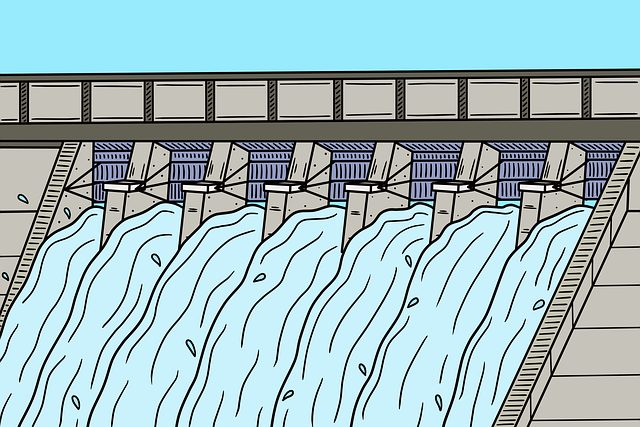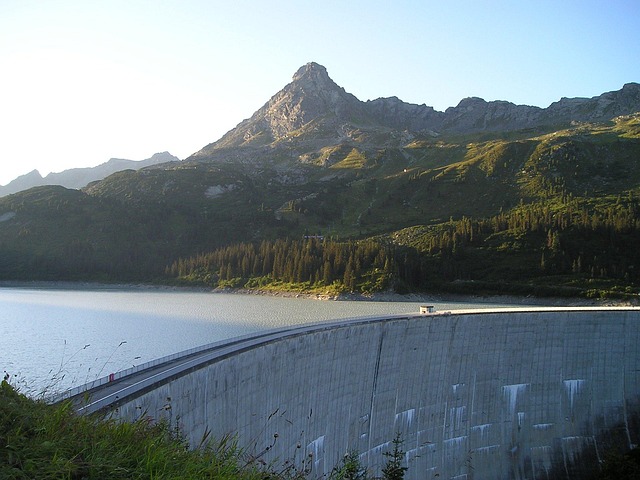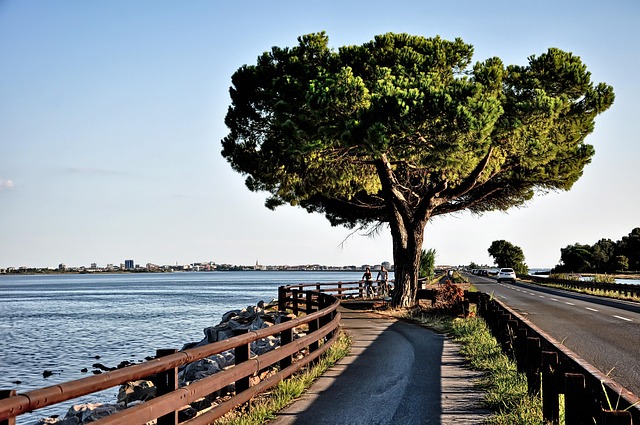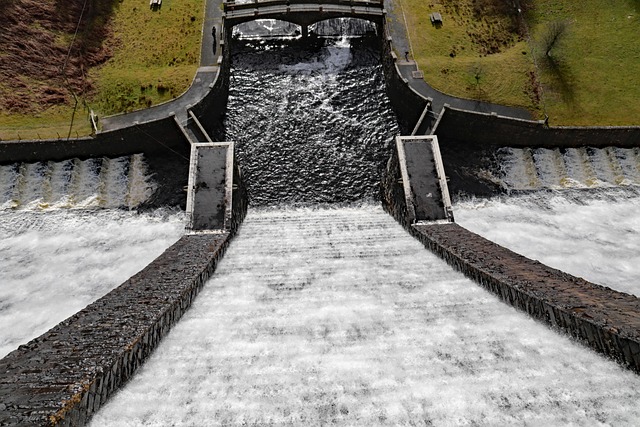Organic farm visits around Hatta Dam offer immersive educational experiences, promoting sustainable farming practices and environmental conservation. These visits showcase natural pest control methods, diverse organic crops, and the benefits of local fresh produce. Engaging activities inspire support for local organic farmers, fostering self-sufficiency and contributing to a more sustainable future. Hatta Dam serves as a vibrant center for agricultural education, guiding participants through year-round cultivation, workshops on eco-friendly methods, and hands-on experiences that enrich understanding of local food sources. These visits promote healthier eating habits, strengthen community bonds, and inspire interest in agriculture, ultimately nurturing a resilient food ecosystem centered around sustainable practices.
“Unleash the power of organic farming and sustainable education through immersive farm visits. From local produce tours to innovative hubs like Hatta Dam, these experiences engage communities and foster environmental stewardship. This article explores diverse strategies, including educational programs, health-focused initiatives, and community partnerships, that transform farm visits into powerful tools for ecological awareness. Discover how hands-on activities cater to all ages, while measuring impact demonstrates the profound effects on both local engagement and global sustainability.”
- The Benefits of Organic Farm Visits for Sustainable Education
- Engaging Local Communities with Fresh Produce Tours
- Hatta Dam: A Hub for Agricultural Innovation and Education
- Designing Educational Programs Around Organic Farming Practices
- Promoting Healthier Eating Habits Through Farm-to-Table Experiences
- Building Partnerships with Local Farmers for Sustainable Food Systems
- Incorporating Hands-On Activities at Organic Farms for All Ages
- Measuring the Impact of Farm Visits on Environmental Awareness and Community Engagement
The Benefits of Organic Farm Visits for Sustainable Education

Organic farm visits offer a unique and educational experience, especially for those interested in sustainable living and environmental conservation. These visits provide an opportunity to learn about the principles of organic farming, which fosters a deeper connection with nature and promotes ecological balance. By engaging in hands-on activities on a hatta dam, participants can witness firsthand how sustainable agricultural practices contribute to a healthier ecosystem.
Such visits are valuable educational tools, as they bring sustainable concepts to life. Visitors can explore diverse crops grown without synthetic chemicals, understand natural pest control methods, and discover the benefits of local, fresh produce. These experiences inspire individuals to make informed choices about their food sources and encourage them to support local farmers who adhere to organic standards, ultimately contributing to a more sustainable future through simple, yet impactful, actions like participating in Hatta dam activities.
Engaging Local Communities with Fresh Produce Tours

Engaging local communities in fresh produce tours is a powerful way to promote sustainable education and connect folks with the source of their food. These tours, often organized around places like the Hatta Dam, offer more than just an opportunity to taste delicious, locally grown produce; they foster a deeper understanding of environmental stewardship and self-sufficiency. Participants learn about organic farming practices, the benefits of eating fresh, seasonal foods, and how their choices can positively impact the local ecosystem.
Through interactive activities and hands-on experiences, these tours encourage community members to take an active role in shaping their food system. They can discover the diverse range of produce available right in their backyard, fostering a sense of pride and connection to their surroundings. The Hatta Dam activities, for instance, provide a unique backdrop to educate and inspire, showing how sustainable farming practices can thrive even in urban settings, ultimately leading to healthier communities and a more resilient food landscape.
Hatta Dam: A Hub for Agricultural Innovation and Education

Hatta Dam, a significant landmark in the region, has evolved into a dynamic hub for agricultural innovation and education. Visitors can engage in various activities that showcase sustainable farming practices and the importance of local fresh produce. These experiences range from guided tours through lush organic farms to workshops focused on eco-friendly cultivation methods. By participating in Hatta Dam’s offerings, individuals not only gain insights into modern agriculture but also contribute to a growing movement towards sustainability and community empowerment.
The dam’s strategic location provides an ideal environment for cultivating a diverse array of crops year-round. Educational initiatives emphasize the benefits of organic farming, water conservation, and the preservation of natural ecosystems. Tourists can learn about vertical gardening, hydroponics, and other cutting-edge techniques that ensure fresh produce is accessible even in urban settings. These hands-on experiences make sustainable living tangible, inspiring visitors to adopt eco-friendly practices in their daily lives.
Designing Educational Programs Around Organic Farming Practices

Designing educational programs around organic farming practices offers a unique and engaging way to teach sustainable living and environmental stewardship. At the Hatta Dam, for instance, schools can organize field trips that showcase the benefits of organic agriculture. These visits allow students to observe firsthand how farmers cultivate crops without synthetic chemicals, promoting soil health and biodiversity. By participating in tours and hands-on activities, such as planting herb gardens or learning about composting, students gain a deeper understanding of where their food comes from and the importance of local, fresh produce.
Such experiences can be tailored to different age groups, ensuring that educational goals are met while keeping young minds captivated. For example, interactive workshops can teach children about the life cycles of plants and animals, while older students might delve into the economic and social impacts of organic farming. These programs not only enrich academic learning but also foster a connection with nature, encouraging environmentally conscious choices in everyday life.
Promoting Healthier Eating Habits Through Farm-to-Table Experiences

Farm visits and fresh produce tours are powerful tools in promoting healthier eating habits, especially for urban dwellers who may have limited access to local food sources. Engaging in hatta dam activities like these provides a unique opportunity to connect with nature and understand where our food comes from. By witnessing the cultivation process firsthand, participants gain a deeper appreciation for the effort and care that goes into producing fresh, organic produce.
These experiences often spark curiosity about nutrition and encourage people to make more conscious food choices. The proximity of farms to urban centers makes it easier for city folks to access and prioritize local, sustainable produce, leading to healthier dietary habits. Such initiatives contribute to a growing movement that emphasizes the importance of farm-to-table connections in fostering well-being and environmental stewardship.
Building Partnerships with Local Farmers for Sustainable Food Systems

Building partnerships with local farmers is a cornerstone in fostering sustainable food systems, particularly within urban settings like the Hatta Dam area. These collaborations offer a unique opportunity to bridge the gap between fresh, organic produce and communities eager to access it. By organizing guided tours and educational sessions on local farms, residents can gain firsthand knowledge about sustainable agriculture practices and the benefits of consuming locally grown foods.
Such partnerships not only promote environmental sustainability but also strengthen community bonds. The Hatta Dam activities focus on engaging locals in conversations around seasonal produce, encouraging healthy eating habits, and supporting farmers who employ eco-friendly methods. This symbiotic relationship ensures that fresh, organic produce is readily available, while local farmers gain exposure and support for their hard work, contributing to a vibrant and resilient food ecosystem.
Incorporating Hands-On Activities at Organic Farms for All Ages

At organic farms, hands-on activities offer a unique and engaging way to educate people of all ages about sustainable practices and local food production. These experiences allow visitors to connect with nature and gain a deeper understanding of where their food comes from. For instance, at Hatta Dam activities may include planting herb gardens, learning about compost creation, or even participating in harvesting fresh produce like fruits and vegetables. Such interactive sessions foster environmental awareness and promote healthy eating habits, making them ideal for schools, families, and community groups.
Through these activities, visitors can witness firsthand the care and dedication that goes into organic farming, from preparing the soil to tending to crops. It encourages a sense of stewardship for both the environment and local food systems, instilling valuable knowledge and skills in participants. Moreover, hands-on experiences at farms provide an opportunity to explore career paths in agriculture and sustainability, inspiring future farmers and environmental stewards.
Measuring the Impact of Farm Visits on Environmental Awareness and Community Engagement

Farm visits, especially those focused on organic farming and sustainable practices, can significantly enhance environmental awareness among participants. These hands-on experiences offer a unique perspective on the food system, allowing individuals to connect with nature, understand the intricacies of agriculture, and appreciate the importance of local fresh produce. By engaging in Hatta Dam activities that promote sustainable education, communities can foster a deeper sense of stewardship for the environment.
Through guided tours and interactive workshops, farm visits facilitate learning about eco-friendly farming methods, soil health, water conservation, and biodiversity. The direct interaction with farmers and natural ecosystems raises environmental consciousness, encouraging participants to adopt more sustainable habits in their daily lives. Moreover, these visits often spark community engagement by bringing people together to share knowledge, celebrate local food traditions, and contribute to the collective effort of creating a greener future.
Organic farm visits and sustainable education initiatives, such as fresh produce tours at Hatta Dam, play a pivotal role in fostering environmental awareness and strengthening community engagement. These immersive experiences not only promote healthier eating habits but also educate individuals about the importance of organic farming practices and local food systems. By partnering with nearby farmers and incorporating hands-on activities, these programs create a lasting impact, encouraging participants to embrace more sustainable lifestyles. Hatta Dam’s diverse activities serve as a hub for agricultural innovation, where communities can come together, learn from each other, and contribute to a greener future.
